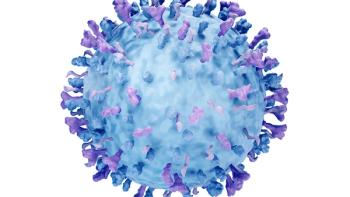
- BioPharm International, September 2021 Issue
- Volume 34
- Issue 9
The Impact of Insufficient Oversight
BioPharm International asked Vincent Colicchio, vice president, supply chain and external manufacturing at Dr. Reddy’s Laboratories, about how a lack of proper supplier oversight can impact the pharmaceutical industry and the drug supply chain.
BioPharm International asked Vincent Colicchio, vice president, supply chain and external manufacturing at Dr. Reddy’s Laboratories, about how a lack of proper supplier oversight can impact the pharmaceutical industry and the drug supply chain.
BioPharm: What types of quality issues can be created by insufficient oversight of material suppliers? Of contract manufacturers?
Colicchio (Dr. Reddy’s): There are several important materials in the pharmaceutical supply chain such as APIs; key starting materials for API production; excipients; purified water; and packaging materials including bottles, closures, vials, and printed components. The types of quality issues that can be created by insufficient oversight of material suppliers that could impact the supply chain include the following examples:
- Material suppliers that manufacture APIs who fail to comply with [good manufacturing practices] GMPs could produce APIs that contain possible contaminants. This can be through dirty equipment and facilities due to poor upkeep, [poor] cleaning, or processing equipment in disrepair. This risk also pertains to the production of excipients.
- Printed component suppliers that fail to track and control the latest approved document version of the files for labels, patient information leaflets, and cartons risk printing and shipping an older version of packaging materials to their customers. Failure to print the latest approved version could compromise the on-time packaging and supply of finished goods to customers due to possible mislabeling.
The types of quality issues that can be created by insufficient oversight of contract manufacturers include failure to ensure that the contract manufacturer thoroughly addressed all open observations found in an FDA inspection or other regulatory agency inspection in a timely manner.
While there are a wide variety of potential issues in this category, it is particularly important that the contract manufacturers properly operate and sanitize the purified water system that is used for production operations and cleaning purposes. Prevention of any microbial contamination is a must in any purified water system. It is also critical that the HVAC systems properly function to maintain production room conditions for temperature and humidity control along with differential pressures at all times.
BioPharm: How is the supply chain impacted by poor oversight of suppliers?
Colicchio (Dr. Reddy’s): The supply chain can be impacted by poor oversight of contract manufacturers. For example, in the event that a contract manufacturer fails to properly clean the production equipment or execute its cleaning validation program, it runs the risk of allowing residues or contaminants to enter into the production process and product. If this occurs, analytical testing would reveal the presence of contaminants. The product would be placed in quarantine until such time that the investigation is carried out and completed with the appropriate [corrective and preventive actions] CAPA. The equipment would need to be re-cleaned. Presuming the original batch fails product release, the product would need to be manufactured again and then shipped to the customer. The delayed shipment of the product to the customer would likely impact on-time and in-full product shipment to the customers and subsequently access to the patients.
About the author
Susan Haigney is managing editor of BioPharm International.
Article Details
BioPharm International
Vol. 34, No. 9
September 2021
Pages: 56
Citation
When referring to this article, please cite it as S.Haigney, “The Impact of Insufficient Oversight,” BioPharm International, 34 (9) 2021.
Articles in this issue
over 4 years ago
Setting a Clear Strategy for Primary Packagingover 4 years ago
Bioprocessing Innovations Pose New Challenges for Fermentationover 4 years ago
Process Chromatography Makes Steady Progressover 4 years ago
Reevaluating Cell and Gene Therapy Developmentover 4 years ago
Using Digital Twins to Model Process Chromatographyover 4 years ago
Opportunities for Digital Twinsover 4 years ago
How Pure is Pure? Understanding Reagent Purity Gradesover 4 years ago
In Vitro Pulls Ahead of In Vivo for Adventitious Agent Testingover 4 years ago
Trends Affecting Biopharmaceutical ManufacturingNewsletter
Stay at the forefront of biopharmaceutical innovation—subscribe to BioPharm International for expert insights on drug development, manufacturing, compliance, and more.




